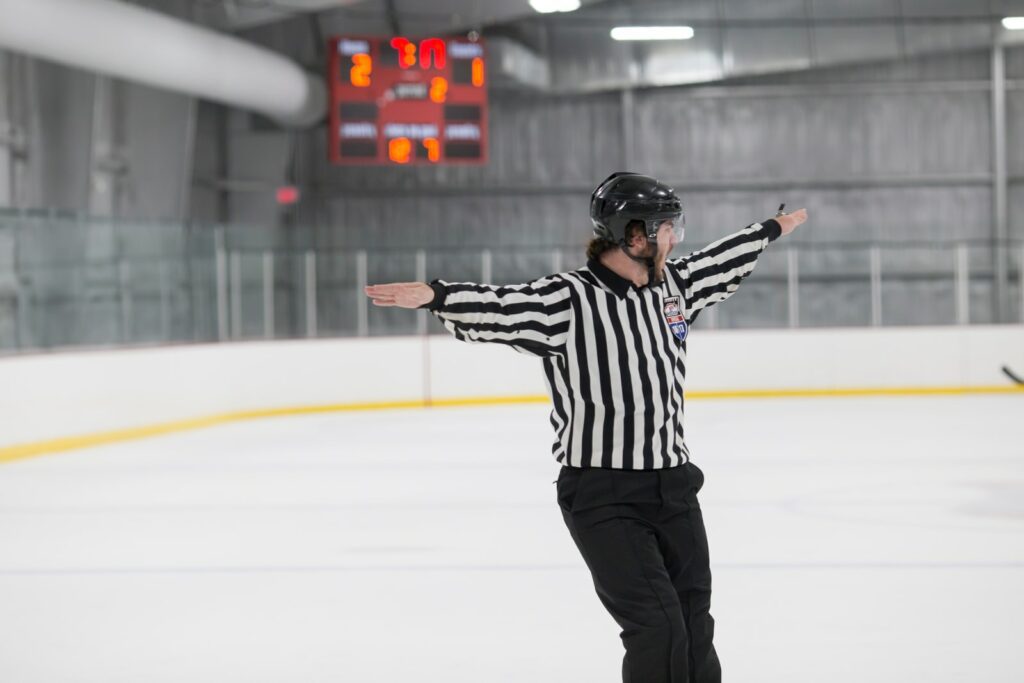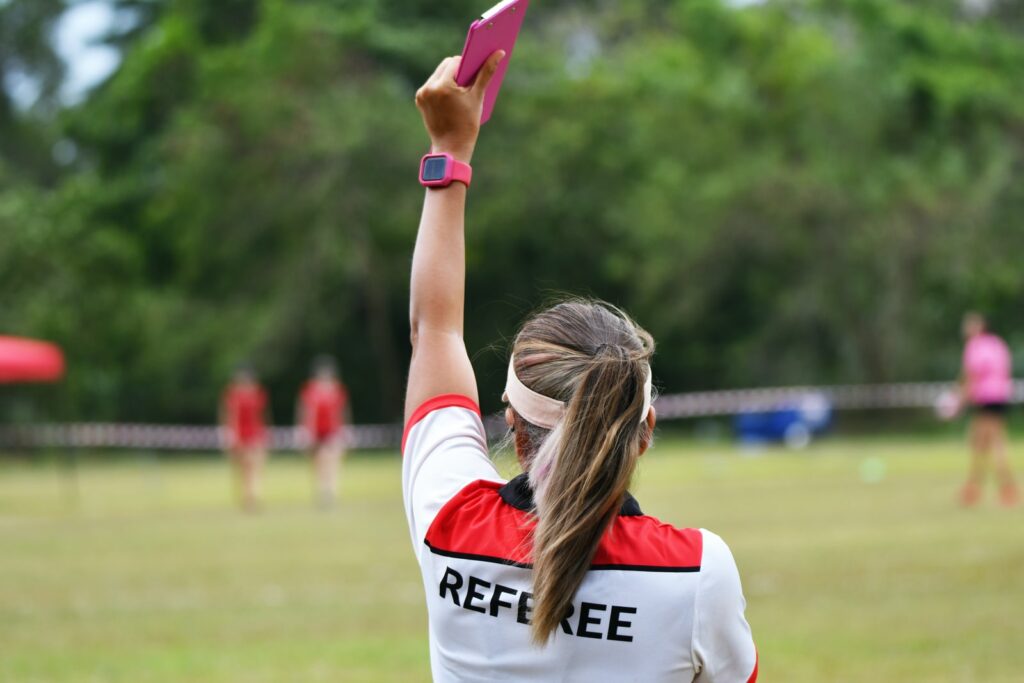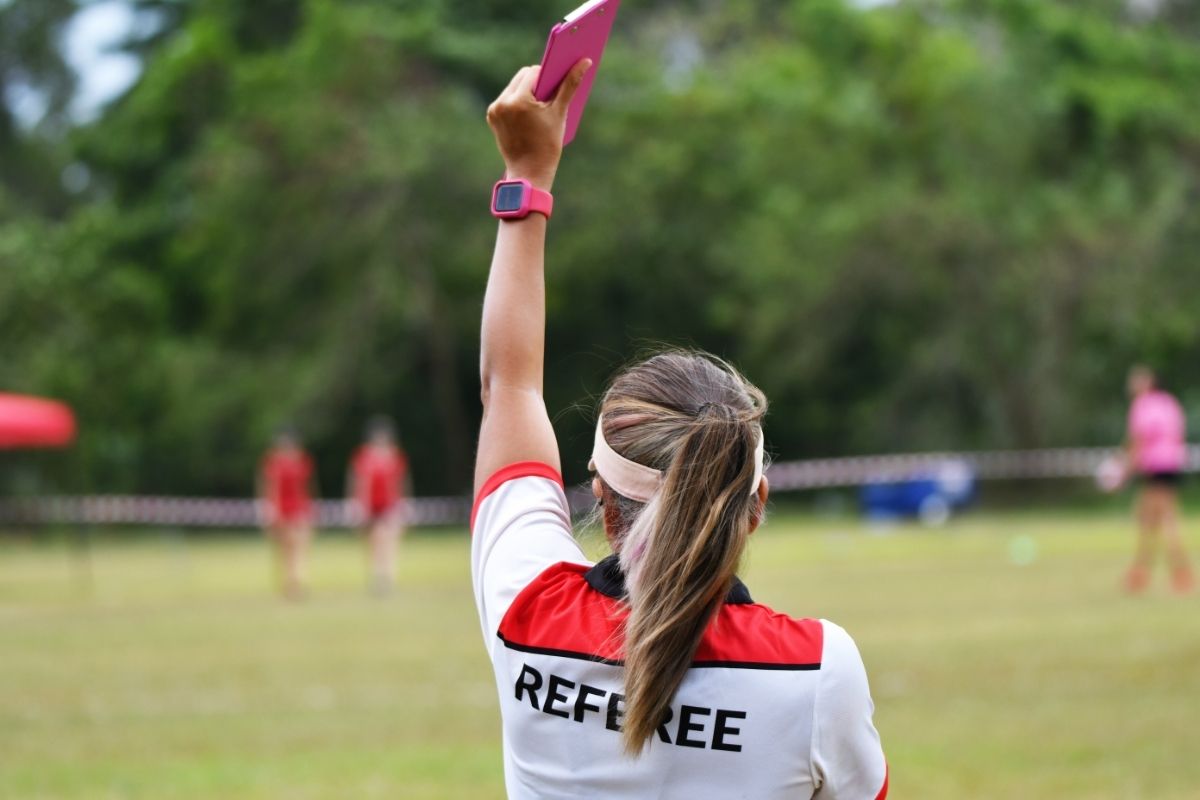As a referee, you are expected to remain impartial, objective, and neutral at all times. In many ways, this makes your role among the most challenging of all the field staff on game day.
Your role as an impartial arbiter of the rules means that you will have to balance keeping everyone happy with making sure the game is played fairly. Refereeing a youth sports game can be a nerve-wracking experience for any new sports official.
How do referees deal with conflict?
While it might seem like there’s no way to go wrong as long as referees and sports officials remember the basic rules of the game and enforce them fairly, without fail, every new official makes mistakes at some point during their first few games.
Whether you are brand-new to refereeing or need a refresher on some key principles, here are seven tips that will help you manage conflict on the field when officiating youth sports games.
When the game begins, make sure your players understand that you are in charge. It’s not enough to just know the rules of the game and be able to correctly apply them; a referee also has to project confidence in his or her ability to make the right call every time.


In many youth sports leagues, there can be as many as five different officials on the field at once, each with a different role.
While you may be used to being the center referee, it’s vital to make sure the other officials know you’re in charge.
Establish your authority from the start, and it will go a long way towards helping you manage the game effectively.
2 – Speak calmly, but be firm
The best referees are those who make players feel comfortable while also getting the message across that they are in charge of the game. Your players and coaches may be upset during a game, but that does not give them license to talk to you disrespectfully.
When coaches or players begin screaming at you or treating you disrespectfully, it is your job as the referee to be firm in your response.
However, you don’t want to sound harsh or condescending when you respond.
Instead, strive to maintain a calm, composed tone. Make appropriate eye contact. Your players and coaches may be upset, but they should never feel like they can’t respectfully ask you a question or have a concern.
3 – Manage conflict by being constantly vigilant
Conflict management begins with prevention. As you manage game flow, watch for signs of escalating conflict between players and coaches on both teams.
Look for signs of verbal conflict between players and coaches, and also keep an eye out for non-verbal cues like a coach aggressively gesturing towards a player or a player pushing, shoving, or throwing a punch at another player.
Conflict Management
If you see something escalating between two players, coaches, or between one player and another team member, be vigilant in stepping in to diffuse the situation before it gets out of hand.
If two players on the same team get into an altercation, it may be tempting to do nothing and only get involved if the conflict spills over onto another player or coach.
However, it is important to intervene in the conflict as soon as you see any signs of a fight between two players on the same team.
If you don’t get involved when two players on the same team get into an altercation, you risk sending a message that you condone fighting.
If you don’t get involved when two players on the same team get into an altercation, you risk sending a message that you condone fighting, and that’s not good officiating.
4 – Don’t be afraid to make a call that goes against your team
It’s easy to let a call against one team slide in order to maintain a positive relationship with that team.


However, it is important to make sure coaching staff and players know that winning the game is not your top priority. However, while you may feel pressure to let certain calls go to maintain a positive relationship with a team, you should always be consistent and make the right call to avoid conflict.
If a team is committing a lot of fouls and you are letting them go without a penalty for it, it can make you appear biased and give the appearance that you are favoring one team over another.
5 – Let players know what is and aren’t acceptable behavior
It’s easy to let things slide during a game. However, you should be consistently calling out and penalizing unsportsmanlike conduct. Coaches and players may try to talk to the referee aggressively or question their calls disrespectfully.
You should reprimand and penalize any unsportsmanlike conduct:
- excessive or unjustified verbal or non-verbal aggression. If two players on the same team begin shoving or pushing each other or a player begins screaming at another teammate or coach, it is important to get in there and stop it before it escalates.
- Verbal or physical aggression directed towards the referee: If a coach or player begins directing aggression towards you, either verbally or non-verbally, you should penalize them for their conduct.
- Leaving the bench or team area during the game: It is important for the safety of all the players on the field that no one leaves the bench during the game.
6 – Don’t rely on verbal warnings only – use penalties if necessary
As a referee, you have the ability to issue verbal warnings and make courtesy penalties when you notice a player or coach committing an infraction.


However, you should not rely only on verbal warnings. You should issue a penalty every time a player or coach commits an infraction. Failure to issue penalties when they are due can easily make you look biased.
If you see a team committing more infractions than the other team, do not be tempted to give them fewer penalties. Instead, make sure to apply a penalty to every infraction from the two teams.
This will help keep you from being biased towards either team.
7 – Sports officials shouldn’t take anything too personally
You are bound to receive some criticism, both warranted and unwarranted, during your first few games as a referee.
Remember, you are not being graded on how well your team does.
Instead, you are being graded on your ability to consistently apply the rules of the game. If a coach or player criticizes you, do your best to take it in stride and resist the urge to take their comments personally.
You are an official; it is bound to happen occasionally. Keep in mind that you are there to help the game flow as smoothly as possible.
If a coach or player is trying to interfere with that, it’s a good sign that you are doing your job properly.
Bottom line for conflict resolution
You will inevitably make mistakes during your first few games as a referee. While it can be intimidating to know that you will inevitably make a few errors during your first game, it is vital to remain confident in your ability to manage a game and ensure it runs smoothly.
Keep the tips listed above in mind, and you’ll be well on your way to managing game flow effectively and being an asset to the game, not a hindrance.
If you are just starting out, don’t expect to be perfect, just focus on fair play.
Instead, focus on learning from your mistakes and improving as the season goes on.
- Can You Play Pickleball on Grass? Tips and Tricks - June 12, 2023
- Do Pickleballs Wear Out? Everything You Need to Know - June 12, 2023
- Can You Play Pickleball on Concrete? A Guide to Playing on Hard Surfaces - June 12, 2023








